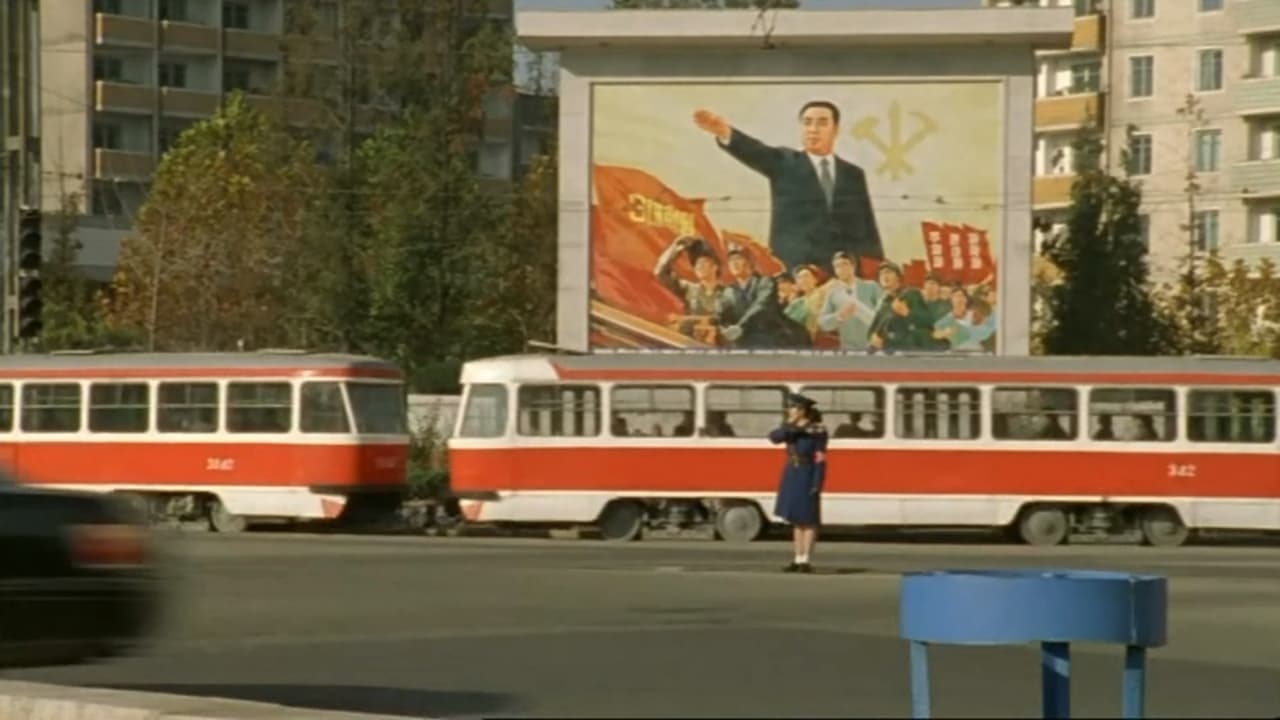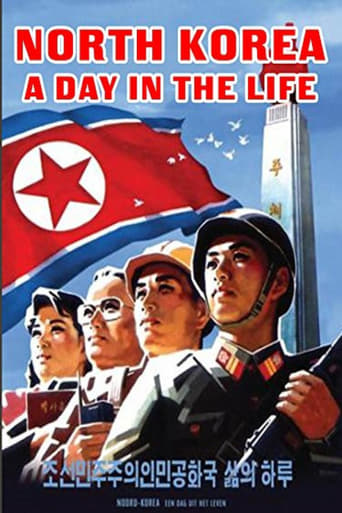AnhartLinkin
This story has more twists and turns than a second-rate soap opera.
Derrick Gibbons
An old-fashioned movie made with new-fashioned finesse.
Kirandeep Yoder
The joyful confection is coated in a sparkly gloss, bright enough to gleam from the darkest, most cynical corners.
aldar
I assume it can be said that North Korea is a true Orwell state. There are first eyed witnesses to confirm that. In what way can a documentary about an Orwell state be viewed? First we have to consider the fact that Fleury was not allowed to bring a single millimeter of "wrong" footage from North Korea. I'm sure the government took care of that. I will also assume that Fleury is an honest film documentary maker and he would not (over)impose his views upon the viewer. So we end up with 48 minutes of, surprise, surprise, moving images from NK's everyday life. Some of them innocent to my eye. Some of them bizarre or ironic in some way(it's of course still in the eye of the beholder). North Koreans discussing information era and internet. A North Korean woman reciting an anti-American speech in front of her family in the comfort of their living room. Electrical power shortages all the time, while monuments of the leader(s) lit to the fullest. A truly grotesque portray of Kim Jong Il at the end of the movie after spending 45 minutes showing 1001 ways of glorifying him (I see this as the only director's try to directly effect viewer's feelings). And so on. As I said earlier, only the proper footage was probably allowed to leave the country. But I don't believe that is a single reason why i felt so little genuine awkwardness in the people in the film (by that I mean people not acting naturally). Maybe even the glimpses into a child's school day may be a good enough cause. We can not blame Fleury nor the Korean censorship for lack of shoving any genuine dissatisfaction of the participants in this documentary. In the film, we hear all the answers to the now non existent questions which may have wondered through their minds some long long time ago. That John Hurt's "I love you" at the end of 1984 explains it best.
Robin McCain
This is a propaganda film, a medium that deserves contempt.Though I may admire the cinematography and picture quality in "Triumph of the Will", the subject matter is so despicable that I must call it an awful film. This film is little better. It too is devoted to the cult of the Leader, and it too blames outside governments for its own faults.Just because this film was made by a European film company does not qualify it as a "Gesamtkunstwerk". In no way does it transcend the political agenda of the North Korean government. Even as the NK Army sucks the blood from the people, they mouth endless platitudes for their Leader and blame all the starvation and misery on the capitalist Americans. Blah, Blah, Blah...
lvbernard
This is clearly propaganda, but (unlike much of the genre) it doesn't stray into bad comedy from our viewpoint. By following a Pyongyang family through a "typical" day, it depicts North Korean life as hard-working, serious-minded, and humane. (Granted, the filmmaker never shows Kim Jong Il in anything but a positive light and never treats the fact that his likeness is EVERYWHERE as something suspicious.) It shows a nation of happy-well-adjusted people who seem content with the ways things are -- as is its the film's purpose. Fleury certainly had to cut a deal with the North Korean regime to even get it made, but he still discloses more about the place than the DPRK government would probably like, if they really knew what Westerners thought.
Ian Morgan
This film presents a North Korean family progressing through an 'average' day. There is no narration, but the filmmaker gives a point to the presentation through his use of film techniques and soundtrack. In order to get this sort of access, Mr. Fleury did have to make concessions to the DPRK government, and its clear that they are putting their best face forward here. However, there is a jarring dissonance between what they must think is their "best face" and what international viewers will probably see as a grim, claustrophobic, and stultifying life that can only be endured by projecting all life's miseries on the "bastard Americans". Best watched in conjunction with "A State of Mind".

